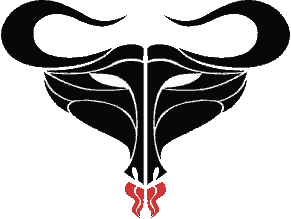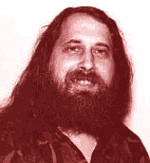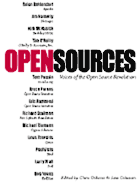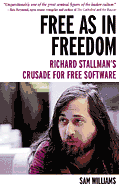|
from 11 august 2002 blue vol II, #45 |
|
|

by Tristan Roddis
Thus the GNU [5] project was born. By 1991, the GNU utilities had become nearly as powerful and flexible as those found on commercial Unices, but were missing a small yet crucial component known as the kernel. Fortunately at that time a Finnish university student called Linus Torvalds had been working on a piece of code that would allow Intel-based personal computers [then available as 286 an 386 vintages, and dominated by the extremely limited DOS [6] operating system] to carry out all of the advanced functions of Unix. As luck would have it, he released the code under the General Public License, or copyleft [7]. This piece of legalese was the brainchild of Richard Stallman, and turned traditional copyright on its head: rather than restricting a user's freedom, it explicitly granted them the right to copy, modify, redistribute and resell it. Thus the missing piece of the jigsaw fell in to place, and the operating system known as Linux [8] was born.
Enter stage left a soft-spoken libertarian programmer called Eric Raymond [12]. Raymond had been observing the evolution of these free software systems [13], and had come up with a simple, demonstrable proposition that even the 'suits' would understand: due to the massively parallel way in which free software was developed, it was of higher quality than its proprietary rivals [14]. This meant less bugs, less downtime, less maintenance headaches, and so less outgoing money. The business case was clear [15], but the image problem remained. Nobody in the bullish, free-market business world liked Stallman's idealistic talk of individual freedom, or the ambiguous use of the word 'free'* ["free? if it doesn't cost anything, it can't be worth anything!"]. So Raymond decided that a re-brand was in order. He coined the term 'open-source software'* to describe the systems, and evangelized the business benefits of publicly-available, rapidly-updated software over their closed, unstable rivals. Open source [16] and free software became different phrases to describe the same phenomenon.
So here we are again, confronted by evolution. Free software works better because it is crafted by hundreds. Something that is a stumbling block for one person becomes a trivial fix for someone else. Peer review means more robust software: "given enough eyeballs, all bugs are shallow". Participatory software creates a virtuous circle: endless public [and archived] conversation leads to rapid consensus and swift re-working of deficiencies. When security flaws are discovered in open systems, fixes tend to emerge within days [17], rather than the weeks or months necessary for large corporate vendors to rework their systems.
Linux is the fastest-growing operating system ever, and now runs on more hardware platforms than any other OS. From mainframes to PalmPilots, Linux and its cute penguin logo [33] is the new lingua franca. It's putting the free back in to the free market [34]. Companies new and old are rushing to jump on the open source bandwagon: AOL [35], Borland [36], Caldera [37], Cobalt [38], Corel [39], IBM [40], RedHat [41], SuSE [42], SGI [43] - all of these and more are now developing and selling free software. Less a snowball effect - more an avalanche. Linux accounts for over 25% of all purchased server operating systems [44]. The Apache web server runs 58% of the sites on the internet [45]. Sendmail runs 75% of all internet mail servers [46]. Free software is a child of the net. The terms of its distribution policy means that it is a global heritage owned by everybody and nobody. It has a longevety that goes way beyond any shrink-wrapped system: the only way that it can die out is through lack of interest. There is no such thing as open source vapourware. It cannot be bought out, and it cannot lock you in. It is a pure statement of free choice.
And what does all of this mean for the software systems that we use at [company name removed to protect the guilty], and for the way in which we develop our applications? We should change. Change everything.
| |||
|
BLUE is looking for short fiction, extracts of novels, poetry, lyrics,
polemics, opinions, eyewitness accounts, news, features, information and arts
in any form relating to eco cultural- social- spiritual issues, events and
activites [creative and political]. Send to Newsdesk. |



 And this evolution also occurs on a macro level. Thousands of projects start up, exchange information, divide, merge or die. The pace of development is dizzying, with natural selection being the only criterion for success. Vendors of proprietary systems scoff at this 'lack of development roadmap', but believers in Charles Darwin's famous hypotheses know that there was no roadmap for the killer whale or the lion or for homo sapiens, yet each manages to dominate its environmental niche. The fecund chaos of this software ecosystem is producing an astounding variety of new applications: the KDE [18] and GNOME [19] desktop environments; the GIMP [20] graphics package; the Mozilla [21] browser; the Abisource [22] office suite; the Gnumeric [23] spreadsheet; the Samba [24] networking project, as well as a whole host of internet application servers: Cocoon [25], Enhydra [26], Hamilton [27], Horde [28], Locomotive [29], Midguard [30], PHP [31], Zope [32].
And this evolution also occurs on a macro level. Thousands of projects start up, exchange information, divide, merge or die. The pace of development is dizzying, with natural selection being the only criterion for success. Vendors of proprietary systems scoff at this 'lack of development roadmap', but believers in Charles Darwin's famous hypotheses know that there was no roadmap for the killer whale or the lion or for homo sapiens, yet each manages to dominate its environmental niche. The fecund chaos of this software ecosystem is producing an astounding variety of new applications: the KDE [18] and GNOME [19] desktop environments; the GIMP [20] graphics package; the Mozilla [21] browser; the Abisource [22] office suite; the Gnumeric [23] spreadsheet; the Samba [24] networking project, as well as a whole host of internet application servers: Cocoon [25], Enhydra [26], Hamilton [27], Horde [28], Locomotive [29], Midguard [30], PHP [31], Zope [32].
